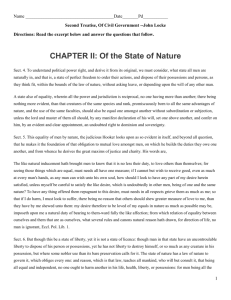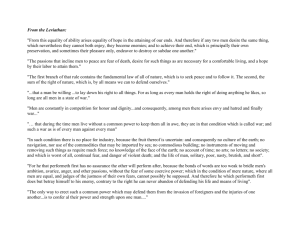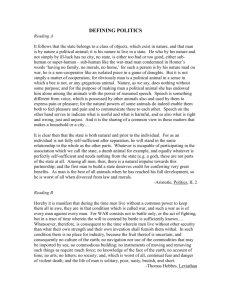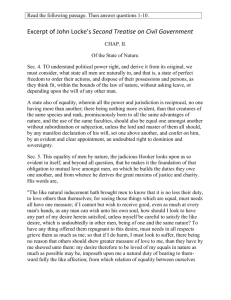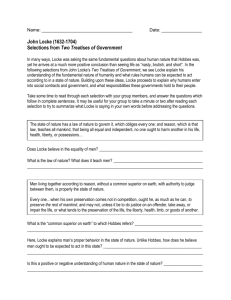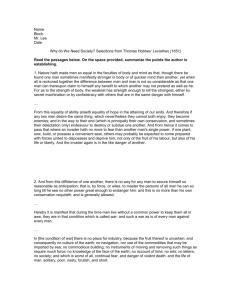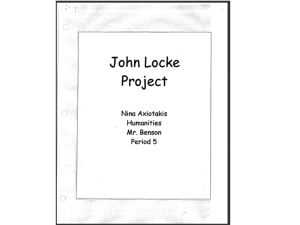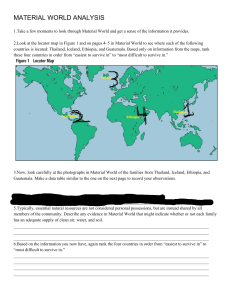Second Treatise
advertisement
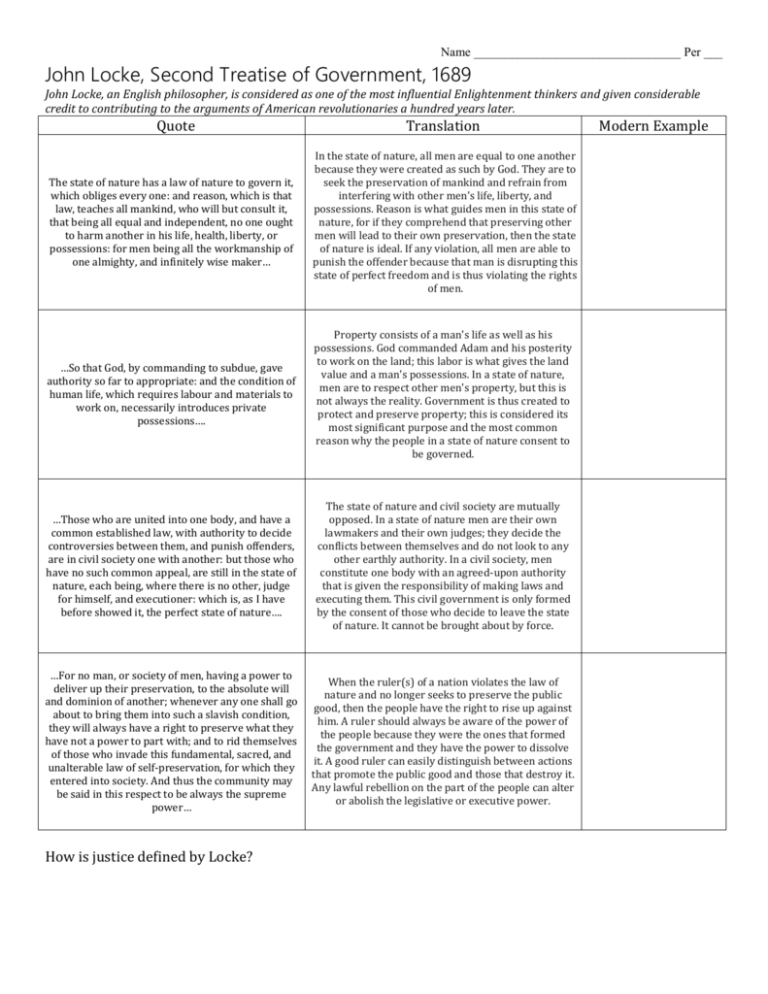
Name _________________________________ Per ___ John Locke, Second Treatise of Government, 1689 John Locke, an English philosopher, is considered as one of the most influential Enlightenment thinkers and given considerable credit to contributing to the arguments of American revolutionaries a hundred years later. Quote Translation The state of nature has a law of nature to govern it, which obliges every one: and reason, which is that law, teaches all mankind, who will but consult it, that being all equal and independent, no one ought to harm another in his life, health, liberty, or possessions: for men being all the workmanship of one almighty, and infinitely wise maker… In the state of nature, all men are equal to one another because they were created as such by God. They are to seek the preservation of mankind and refrain from interfering with other men’s life, liberty, and possessions. Reason is what guides men in this state of nature, for if they comprehend that preserving other men will lead to their own preservation, then the state of nature is ideal. If any violation, all men are able to punish the offender because that man is disrupting this state of perfect freedom and is thus violating the rights of men. …So that God, by commanding to subdue, gave authority so far to appropriate: and the condition of human life, which requires labour and materials to work on, necessarily introduces private possessions…. Property consists of a man's life as well as his possessions. God commanded Adam and his posterity to work on the land; this labor is what gives the land value and a man's possessions. In a state of nature, men are to respect other men's property, but this is not always the reality. Government is thus created to protect and preserve property; this is considered its most significant purpose and the most common reason why the people in a state of nature consent to be governed. …Those who are united into one body, and have a common established law, with authority to decide controversies between them, and punish offenders, are in civil society one with another: but those who have no such common appeal, are still in the state of nature, each being, where there is no other, judge for himself, and executioner: which is, as I have before showed it, the perfect state of nature…. The state of nature and civil society are mutually opposed. In a state of nature men are their own lawmakers and their own judges; they decide the conflicts between themselves and do not look to any other earthly authority. In a civil society, men constitute one body with an agreed-upon authority that is given the responsibility of making laws and executing them. This civil government is only formed by the consent of those who decide to leave the state of nature. It cannot be brought about by force. …For no man, or society of men, having a power to deliver up their preservation, to the absolute will and dominion of another; whenever any one shall go about to bring them into such a slavish condition, they will always have a right to preserve what they have not a power to part with; and to rid themselves of those who invade this fundamental, sacred, and unalterable law of self-preservation, for which they entered into society. And thus the community may be said in this respect to be always the supreme power… When the ruler(s) of a nation violates the law of nature and no longer seeks to preserve the public good, then the people have the right to rise up against him. A ruler should always be aware of the power of the people because they were the ones that formed the government and they have the power to dissolve it. A good ruler can easily distinguish between actions that promote the public good and those that destroy it. Any lawful rebellion on the part of the people can alter or abolish the legislative or executive power. How is justice defined by Locke? Modern Example Hammurabi vs. King James vs. John Locke

